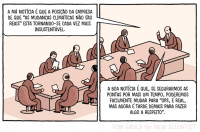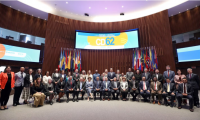“Malaria Champions of the Americas” seeks successful initiatives to eliminate malaria and prevent its reintroduction

Malaria initiatives that demonstrate concrete technical and programmatic changes geared towards malaria elimination and the prevention of its re-establishment are eligible to compete in this year's "Malaria Champions of the Americas" contest, which gets under way on World Malaria Day, April 25. The nomination deadline is June 20.
Currently in its eighth year, the annual search for the Malaria Champions of the Americas aims to identify and honor innovative efforts that have demonstrated success in malaria prevention, control, elimination, or prevention of reintroduction, and that have significantly contributed to overcoming the challenges of malaria in communities, countries, or the Americas as a whole.
The awards are sponsored by the Pan American Health Organization/World Health Organization (PAHO/WHO), the George Washington University Milken Institute School of Public Health (MISPH), the Johns Hopkins Bloomberg School of Public Health Center for Communication Programs (JHU-CCP), and the United Nations Foundation.
Regional progress against malaria
In the Americas, deaths from malaria declined 79% between 2000 and 2014, and the number of cases declined by 67%. Nineteen of the 21 malaria-endemic countries in the Region saw a decrease in cases in 2014 relative to 2000. Fourteen of these countries reported reductions of more than 75%; two countries reported decreases of 50% to 75%; while three others saw reductions of <50%, indicating progress. Only two endemic countries continued to report increases in their total number of cases.
The theme of World Malaria Day 2016 is "End Malaria for Good." The campaign focuses on how smart investments and strong partnerships have produced dramatic progress against malaria in the past 15 years, and how eliminating malaria will make the world a better, safer place for future generations, enabling millions of people to reach their full potential.
To reinforce the Region of the America's evolving commitment to malaria elimination and prevention of re-establishment, the Malaria Champions of the Americas 2016 will recognize malaria efforts that demonstrate innovative changes geared toward for greater effectiveness, for example, the use of surveillance information in decision-making; quality assurance and timeliness in terms of key malaria interventions; innovative approaches to address populations in situations of vulnerability; strengthened country ownership or reinforced national investments, among others. Nominations will be evaluated based on demonstrated achievements in capacity building, innovation and equity, collaboration, and impact.
Winners of the 2016 Malaria Champion of the Americas award will receive:
The opportunity to participate in three PAHO capacity-building trainings for malaria prevention, control and elimination
US$2,500 in funding to support malaria-related capacity-building efforts (e.g., staff training/education, research, project proposal development, or other activities that enhance skills and abilities to achieve goals and targets)
A commemorative plaque
The opportunity to be featured in various communication platforms of PAHO, UN Foundation, GWU-MISPH, and JHU-CCP as a "best practice" story on malaria.
Nominations for the 2016 Malaria Champions of the Americas will be accepted from April 25 to June 20, 2016. Full details and nomination forms can be downloaded atwww.paho.org/malariachampions.
Top winners will be recognized during the commemoration of Malaria Day in the Americas in November 2016.
Previous awardees have included the National Program for Malaria Prevention and Control of Brazil (2015), the National Center for Control of Tropical Diseases (CENCET) of the Dominican Republic (2014), the University of Antioquia Foundation (FUA) Fund for Development Projects (FONADE) of Colombia (2013), the National Malaria Program of Paraguay (2012), and the Municipality of Wampusirpi in Gracias a Dios, Honduras (2011). Other honorees have included programs from Ecuador, Guatemala, Mexico, Nicaragua, and Suriname.
For further information please e-mail champion@paho.org or malaria@paho.org



